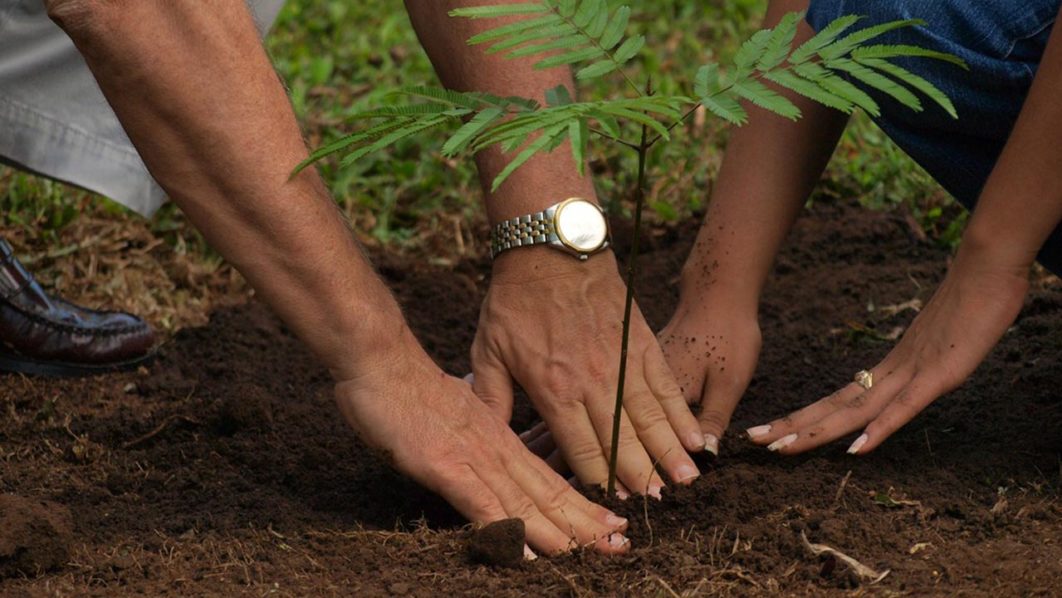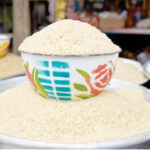Today, breeders, whether individual enthusiasts, farmers, research institutions or multinational corporations, work to develop new plant varieties. Improved varieties are a necessary and cost-effective means of improving productivity, quality and marketability for farmers and growers. However, breeding new varieties of plants requires a substantial investment of skills, labor, material resources, money, and time – it can take more than 15 years to bring a new variety to the market.
Intellectual Property (IP) protection is therefore afforded to plant breeders as an incentive for the development of new varieties to contribute to sustainable progress in agriculture. This explains why the Plants Varieties Protection Act 2021 as signed by President Muhammadu Buhari on May 21, 2021, is the timely game-changer that plant breeders in Nigeria had desired for ages.
- Residents allege extortion as Mambilla power project execution drags
- Troops kill 50 bandits in Kaduna
The Plant Variety Protection (PVP) Bill was passed by the House of Representatives on the 17th of December 2020 and the Senate on the 3rd of March 2021 after several months of deliberation. The Act came after so many years of struggle by a robust coalition led by the National Agricultural Seed Council (NASC); an agency of the Federal Ministry of Agriculture and Rural Development (FMARD) involving both business and academic groups including the Nigerian Economic Summit Group (NESG), the National Assembly Business Environment Roundtable (NASSBER), the Partnership for Inclusive Agricultural Transformation in Africa (PIATA), The Nigerian Plant Breeders Association(NPBA), Agricultural Research Council of Nigeria(ARCN), Association of Seed Scientist of Nigeria (ASSN), Genetic Society of Nigeria (GSN), All Farmers Association of Nigeria(AFAN), Alliance for a Green Revolution in Africa (AGRA), the media among others.
With the enactment of the PVP law, a stage has been provided for the creation of a plant variety protection system that will incentivise plant breeders, while also giving national and multinational agroindustry investors the opportunity to make the best out of the current agricultural situation by bringing on added values towards the development of Nigeria’s Agriculture value chain.
The PVP is a template for the promotion of the marketing of new varieties in such a way that allows breeders to earn back the considerable costs involved in the long process of variety development. It is a well-crafted document that contains very important segments that highlight the active participation of private sectors, multinationals, and inter-governmental agencies in the Nigerian seeds industry. It also has a detailed process of procuring breeders’ rights in a transparent way.
The Act contains 11 distinct sections that cover the administration, varieties to be protected, the process of application for enforcement of rights, disposition of rights, exemptions of rights, nullity and cancellation of rights, offences and penalties, among others. As stipulated by the Act, the Plant Variety Protection Office is domiciled in the National Agricultural Seeds Council and is administered by Registrar to be appointed by the Board of NASC following the recommendation of a competent officer to the Board by NASC.
In terms of varieties to be protected, the Law is applicable to all plant genera and species, for which the following rights “shall” be protected; The breeder’s right “shall” be granted with respect to a variety which is new, distinct, uniform, and stable. The grant of the breeder’s right “shall” not be subjected to any further or different conditions, provided that. (a) variety is designated by a denomination in accordance with the provision of the Act. (b) the applicant must comply with provisions of the Acts and pay the fees prescribed accordingly.
In other words, breeders’ works will be protected from counterfeiting, plagiarism, and other forms of copying which is currently widespread in the country. A breeder can now go to sleep as soon as his variety is accepted and registered.
On benefits to Nigerian plant breeders, in the past, local plant breeders would seldom go the extra mile in furthering their research works towards developing new varieties of plants. They would rather align with international institutions, in which the benefits would go to the foreign institution. Although the local researcher and plant would have had his or her capacity built up, the benefits are limited, as there was a legislative framework to secure whatever they do in the country.
This development retarded plant breeding activities in the country for a long time. Today you hear of Ife Brown, SAMPEA and other crop varieties released in the last 20 years without any follow-up. Where are our breeders today? Most of the breeding activities done in the country are in association with IITA or other foreign bodies who introduce our breeders to participate to allow for release in Nigeria.
Operationalising the Plant Variety Protection Law in the country will end this worthless exploitation of our breeders and resources. The PVP provides legal intellectual property rights to plant breeders who develop new and improved seeds for increased crop production.
For a long time running, Nigerians have been doubtful of the emergence of new varieties of crops, especially food crops because they feel they are products of some researchers attached to some foreign companies abroad who want to exploit them as Guinea Pigs. This explains the resistance to the adoption of Genetically Modified food crops.
The PVP provides economic benefits, such as varieties with improved yields which lead to reductions in the price of end-products for consumers, or improved quality leading to higher-value products with increased marketability; health benefits, for example through varieties with improved nutritional content, environmental benefits, such as varieties with improved disease resistance or stress tolerance; and pleasure.
According to the UPOV Secretariat, an effective plant variety protection system can provide important benefits in an international context by removing barriers to trade in varieties, thereby increasing domestic and international market scope. Breeders are unlikely to release valuable varieties into a country without effective protection. With access to valuable foreign-bred varieties, domestic growers and producers have more scope to improve their production and to export their products.
By Dr Phillip Olusegun Ojo who is Director-General, National Agricultural Seeds Council (NASC), Abuja, Nigeria

 Join Daily Trust WhatsApp Community For Quick Access To News and Happenings Around You.
Join Daily Trust WhatsApp Community For Quick Access To News and Happenings Around You.


